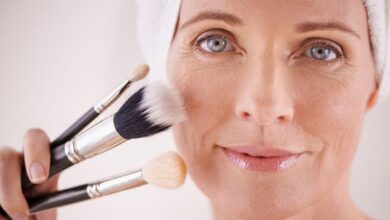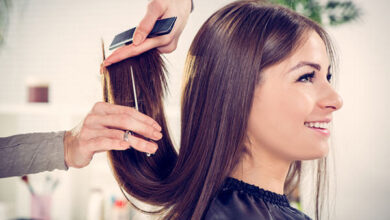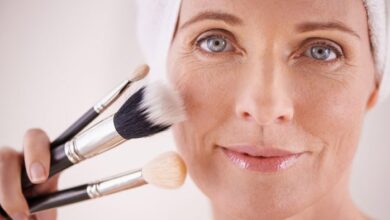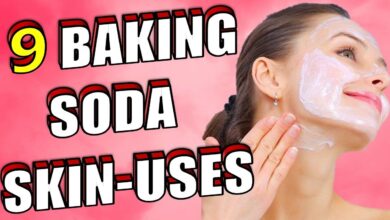
Almonds contain a variety of vitamins, minerals, and proteins. Since ancient times, women have relied on almonds for revitalizing their skin. They help in absorbing excess oil and impurities.
The Egyptian Queen, Cleopatra, who was well known for her beautiful skin, hair and body, is believed to have included almonds in her diet and skincare regime.
Almonds are a rich source of vitamin-E, which nourishes and softens the skin. Applying almond oil or almond milk is also beneficial as it protects the skin from sun damage.
Let’s see how to use almond for oily skin –
- Grind some almonds to form a powder.
- Add 2 tablespoons of honey to form a thick paste.
- Massage all over your face in circular motions.
- Wash it off with warm water and pat dry.
- Alternatively, grind the almonds and form a paste by adding honey, then apply it as a face mask. Leave it on for 10-15 minutes and then wash it off with warm water. Pat dry.
5. Aloe Vera

Aloe Vera is known to soothe burns and other skin conditions. It is also a great remedy for oily skin and is used in a lot of glowing skin home remedies for oily skin.
Antioxidants present in Aloe Vera help in nourishing the skin. Hormones auxins and gibberellins present in Aloe Vera have anti-inflammatory properties that help in acne treatment for oily skin.
Aloe Vera has natural astringent properties to absorb excess oil and impurities from the skin. It keeps the skin moisturized, without making it oily.
Let’s see a simple way to use Aloe Vera for oily skin –
- Apply a thin layer of aloe vera gel over your face at night.
- Wash it off with warm water in the morning.
6. Tomatoes

Tomatoes are great for oily skin. They have cooling and astringent properties, which help in soothing the skin and preventing any inflammation on the skin. They are a rich source of Vitamin C, which helps to brighten skin and heal acne.
Tomatoes also contain Vitamin A, which is needed for healthy skin. Tomatoes help in maintaining the pH levels of the skin.
Salicylic acid present in tomatoes is a great ingredient for acne-prone skin. The acids present in tomatoes also help to absorb excess oil and unclog pores. There are also many antioxidants in tomatoes.
Let’s see a simple way to use tomatoes for oily skin –
- Combine 1 tablespoon sugar with the pulp of 1 tomato.
- Massage all over your face in circular motions.
- Wash it off with warm water and pat dry.
- Alternatively, you can also directly massage your face with tomato slices.
7. Fuller’s Earth

Fuller’s Earth is derived from clay, and has long been used in DIY recipes for skin brightening and controlling oily skin. It is a rich source of natural minerals like zinc, silica, magnesium, and iron. If you are an Indian, you would be familiar with the all-pervading ‘multani mitti’, that formed a staple of the skincare regimen of housewives across the nation before artificial creams took over.
The absorbent properties of Fuller’s Earth help to control excess oil. While doing so, it doesn’t make the skin dry, instead, it keeps the moisture intact. It lightens up your skin tone and helps in lightening blemishes and dark spots. It tightens the skin as well.
Let’s see how to use fuller earth for oily skin –
- Make a paste by mixing 2 tablespoons of Fuller’s Earth with water.
- Apply the paste on your face and leave it on till it dries completely.
- Wash it off with plain water and pat dry.
8. Coffee

Coffee is rich in antioxidants and stimulates the synthesis of elastin and collagen, thereby helping in increasing the firmness of the skin. The antioxidants present in coffee help fight the free radicals that damage the skin.
Applying coffee directly to the face may help reduce the appearance of sunspots, redness, and fine lines.
Anti-inflammatory properties of coffee help in reducing hyperpigmentation and inflammation. Coffee also has antibacterial properties that help to combat acne. Both the anti-inflammatory and antibacterial properties of coffee can be attributed to the presence of chlorogenic acid.
Let’s see how to use coffee for oily skin –
- Form a thick paste by mixing equal proportions of coffee and honey.
- Massage all over your face like a scrub.
- Wash it off with warm water.
9. Cucumber

Cucumbers don’t just make for a good salad; they are also a good oily skin remedy. They are astringent, hydrating, and helpful in tightening your pores.
Cucumbers contain about 90% water, which helps in keeping the skin hydrated and moisturized, without making it oily.
The astringent properties of cucumber help in removing excess sebum, dirt, and dead skin cells from the surface of the skin. Cucumbers are a rich source of Vitamin C, which helps in reducing oil secretion and skin brightening. They are also used to calm the skin, reduce freckles and treat inflammation.
Let’s see how to make a simple cucumber face mask for oily skin –
- Make a cooling cucumber face mask by mixing 1 egg white with cucumber paste.
- Add 1 teaspoon of lemon juice into the mask.
- Apply all over your face and leave it on for 15-30 minutes.
- Wash it off with warm water and pat dry.
10. Cornstarch

Cornstarch is another excellent remedy for oily skin. It has oil-absorbing properties and regulates the level of fats your skin produces every day. It contains Vitamin A, which helps in color correcting dark spots. Iron and calcium present in cornstarch help to renew skin cells.
Cornstarch’s fine texture is perfect for gentle exfoliating. Due to its anti-inflammatory properties, it can be used as a DIY soother for skin irritation and skin allergies.
Cornstarch can also be used as a setting powder for people with oily skin. It soaks up excess oil and helps the makeup to last longer.
Let’s see how to make a simple paste using cornstarch for oily skin –
- Combine 2 tablespoons of cornstarch with warm water to form a paste.
- Apply this paste all over your face and leave it on till it dries.
- Wash it off with warm water.
11. Banana

There are many powerful ingredients present in this fruit, which make it an excellent ingredient for oily skin. Potassium present in bananas helps in hydrating and moisturizing dehydrated skin.
B-vitamins present in bananas helps in fighting against free radicals that cause skin damage. Vitamin A helps to fade acne scars and dark spots. Zinc helps in fighting acne-causing germs. Vitamin C helps to control oil production and helps in the production of collagen.
Lectin helps to destroy bacteria that cause acne and pimples. Amino acids present in bananas keep the skin nourished and help in maintaining skin elasticity and strength.
Let’s see how to prepare a simple homemade banana face mask for oily skin –
- Put a banana and add a tablespoon of honey into a blender.
- Add 1 teaspoon of lemon juice into the blender.
- Blend the ingredients to form a paste.
- Apply the paste all over your face and let it sit for 15-30 minutes.
- Wash it off with cold water.
12. Baking Soda
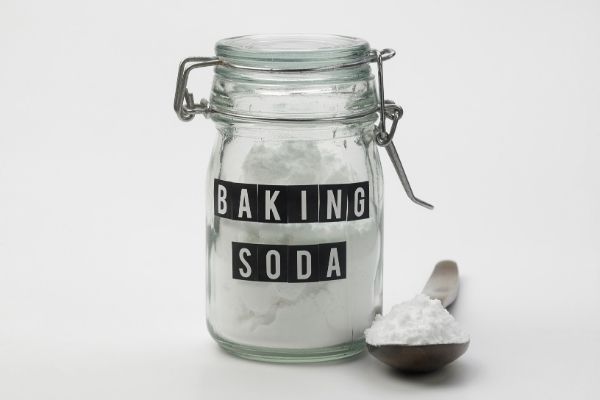
Baking soda has anti-inflammatory and antiseptic properties, which help to treat oily skin. Baking soda, or sodium bicarbonate (NaHCO3), is an alkaline substance, that helps in maintaining the elasticity of the skin. It can help soothe inflammation and mild pain caused by acne breakouts.
Baking soda gently exfoliates the skin, removing the layer of dead skin cells.
The mild exfoliating property of baking soda makes it a wonder ingredient to help banish acne and breakouts. Its bleaching properties help in fading away dark spots and blemishes.
Its astringent properties help to close the pores and prevent them from clogging with dirt and other impurities that cause acne.
Let’s see a simple usage of baking powder for oily skin –
- Mix 1 tablespoon of baking soda with 2-3 tablespoons of water to form a paste.
- Apply this mask on your face and leave it on till it dries.
- Wash it off with plain water and pat dry.
13. Orange Peel

Orange peel is an effective treatment for oily and greasy skin. It has a higher concentration of vitamins and minerals than the orange itself. The astringent property of orange peel helps to remove excess oil. Orange peel also cleanses and opens clogged pores.
Being a citrus fruit, it lightens dark spots and helps to bring a natural glow to the skin. The granular orange peel powder fights pimples, acne, and blackheads. It contains antioxidants that slow down wrinkles and aging. It helps reduce inflammation and works as a natural cleanser.
Let’s see how to prepare a simple face pack for oily skin at home using orange peel powder.
- Dry orange peels for a few days and then grind it to form a powder.
- Mix this orange peel powder with water or yogurt to form a pack.
- Apply this pack over your face and leave it on till it dries.
- Wash it off with plain water and pat dry.
14. Jojoba Oil

Using oil to cure oily skin sounds counterproductive, but jojoba oil has been used to cure oily and acne-prone skin for a long time. It is moisturizing and has antimicrobial and antifungal properties that fight bacteria and fungi.
Jojoba oil is a good source of Vitamin E, which acts as an antioxidant. This means that jojoba oil helps your skin fight oxidative stress caused by everyday exposure to pollutants and other toxins.
Jojoba oil is very similar to the sebum that is naturally produced by your body. This sends a signal to the sweat follicles that your skin doesn’t need extra sebum for hydration and helps in controlling sebum production.
Jojoba oil has soothing anti-inflammatory properties, which may help treat acne.
Let’s see how you can use jojoba oil for treating oily skin –
- Wash your hands properly.
- Using your fingertips, apply some jojoba Oil all over your face.
- Let it sit for 30 min and wash it off with plain water.
15. Apple

This beneficial fruit is rich in Vitamin C, Vitamin A, Vitamin E, and copper, all of which are skin-friendly nutrients. Vitamin C present in apples helps to control sebum production and restore the collagen content of the skin.
The copper content in apples helps to control melanin production in the skin. Vitamin A facilitates the growth of new cells. Vitamin E present in apples helps to keep the skin soft and hydrated.
Apples help to get rid of acne and dark spots. High water content in apples helps to keep the skin hydrated and moisturized. It contains polyphenols (antioxidants) that help protect against ultraviolet radiation of the sun, thus helping to preserve the youthful appearance of skin.
Let’s see how you can use apples for oily skin. The first method is, of course, you take one, and eat it. It is, not only good for skin but otherwise good for health in general too. Another way to use it externally for skin is as follows:
- Grate an apple and apply its shreds on your face.
- Leave it on till it dries.
- Wash it off with lukewarm water.
16. Mango Pulp

Mango pulp is used as a natural skincare ingredient in many DIY recipes for oily skin. Mangoes are packed with cleansing, astringent properties, which makes them a wonderful ingredient to include in recipes to prevent acne.
Mango pulp leaves your skin clean and healthy by clearing any bacteria present on the surface of the skin.
Mangiferin, found in the seeds, skin, and kernels of the mango is an excellent antioxidant. It helps to ease the inflammation caused by acne and other skin problems. Vitamin A and C present in mangoes produce collagen that builds the body’s connective tissue.
The pulp of mango rejuvenates and moisturizes your skin. The AHA’s (alpha-hydroxy acids) present in mango help in removing dead skin cells and exposing clean and fresh skin underneath.
Mango pulp can also reduce dark spots and patchy skin tone, giving the skin a natural glow.
Let’s see a simple way to use mango pulp for oily skin –
- Give your face a good massage with mango pulp.
- Leave it on for some time and let it dry.
- Wash it off with warm water and pat dry.
17. Milk
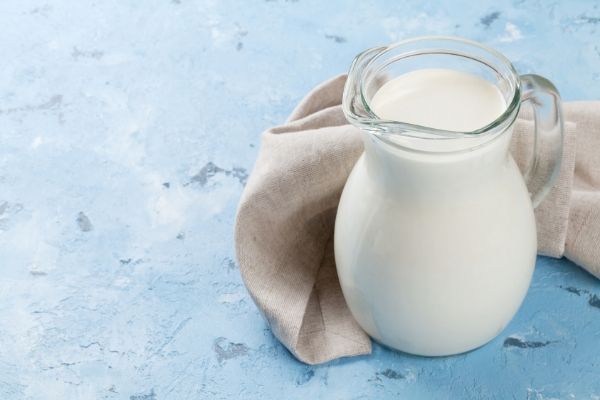
Milk works like a charm for people with oily skin, provided you use it with care. Always make sure that you wash your face with warm water after using milk if you have oily skin. Check to make sure if you are allergic to milk. If you are allergic to milk, avoid using milk products on your face.
Raw milk moisturizes the skin from deep within. It is rich in B-vitamins, alpha hydroxy acids, calcium, and other antioxidants.
If you have acne-prone skin, milk helps to gently exfoliate your skin and gradually get rid of acne, due to the presence of lactic acid. Lactic acid also fights off microbes responsible for acne.
Milk soothes skin inflammatory conditions like eczema. For people with oily skin, it helps to draw out excess sebum from skin pores and tighten skin pores.
Let’s see a simple way to use milk for oily skin –
- Apply some milk all over your face and let it dry.
- Wash it off with plain water.
18. Apple Cider Vinegar

Apple cider has many skin benefits for the skin. It is rich in acetic, citric, malic and amino acid and also contains a host of vitamins, enzymes, and mineral salts, all of which are beneficial for your skin.
Due to its antibacterial and antifungal properties, apple cider vinegar helps to keep your skin pores free of bacteria, dirt, and dust, thereby helping in getting rid of stubborn acne and pimples.
Apple cider vinegar soothes your skin and keeps it soft and moisturized. Alpha hydroxy acids present in apple cider vinegar help to remove dead skin cells, and expose fresh and healthy skin.
Let’s see how you can use apple cider vinegar in your oily skin care routine –
- Using a cotton ball, apply some apple cider vinegar to your face at night.
- Wash it off with water in the morning.
- If you have sensitive skin, you can dilute this vinegar with a cup of water before using it.
- You can also store this mixture in ice cubes and apply it to your skin for a refreshing feel.
19. Turmeric

Turmeric has antibacterial and antiseptic properties, which helps to clear the skin of bacteria that cause acne and breakouts. Its’ anti-inflammatory properties calm the skin.
Turmeric helps to remove excess oil from the skin, which is why people with oily skin should use turmeric in their DIY recipes regularly. It acts as a great exfoliator and imparts a healthy glow to the skin.
Curcumin, the active ingredient present in turmeric, combats the tyrosinase enzyme that is responsible for creating dark spots from hyperpigmentation.
You get a variety of turmeric in the market, but it’s the wild turmeric (Kasturi Manjal) that is ideal for the skin.
Let’s see how we can incorporate turmeric in our daily skincare routine for oily skin –
- Add ½ teaspoon of turmeric and 1 tablespoon of honey to sufficiently warm water in a bowl.
- Mix the ingredients to form a paste.
- Do not use too much or too little water. The water should just be enough to form a paste that sticks to your face and doesn’t drip.
- Wash it off with warm water after it dries.
20. Papaya

This power fruit packs quite a punch when it comes to fighting oily skin. As a bonus, it also gets rid of uneven skin tone, dark spots, and general dullness of the skin.
Papaya is an excellent exfoliator and helps to get rid of any dead skin cells. Papaya protects the skin from harmful free radicals. Due to the presence of flavonoids, it has strong antibacterial and antifungal properties which help to get rid of acne and any other bacterial and fungal infections.
Papayas help to increase the collagen production in the skin, making it appear soft and supple. They are rich in an enzyme called papain that helps in soothing irritated skin.
Let’s see how we can prepare a simple papaya face pack for oily skin at home –
- Mix some papaya pulp with a tablespoon of honey and a teaspoon of lemon juice to form a pack.
- Apply this pack all over your face.
- Wash it off with warm water after it dries.
Final Thoughts On Home Remedies For Oily Skin
In a nutshell, instead of spending thousands on cosmetic products, you can always try some home remedies for oily skin and pimples, which are not only cost-effective but have zero risks of damaging your skin as well. You also end up doing away with harsh chemicals that any beauty product inevitably contains.
If you are wondering how to get rid of oily skin permanently at home, all the above ingredients are tried and tested and will not harm your skin in any way. Be encouraged to mix and match some of them, and the possibilities are limitless.
Who knows, you might discover hidden skincare secrets! But those of you with sensitive skin should be very careful to make sure there are no adverse effects on your skin. Do not the patch test!

